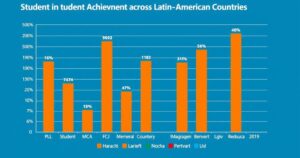Overview of the Syrian Rebels Capturing Damascus: Hayat Tahrir al-Sham
The current Syrian offensive, led by Hayat Tahrir al-Sham and the Syrian National Army, has resulted in significant territorial gains, including the capture of Aleppo and Hama. HTS, the most dominant rebel faction, has a controversial history, facing allegations of human rights violations. Turkish-backed militias aim for a buffer zone against Kurdish forces, raising further complexities in the conflict.
The Syrian rebels making significant advances in Damascus are primarily represented by the Islamist alliance known as Hayat Tahrir al-Sham (HTS), alongside the Turkish-backed Syrian National Army. Both factions have established a stronghold in northwestern Syria. They initiated a substantial offensive on November 27, 2023, effectively seizing control of Aleppo, the nation’s largest city, and Hama, its fourth-largest.
HTS, founded by Abu Muhammad al-Jolani, previously participated in the Iraqi insurgency against U.S. forces and originated from a group that later became associated with the Islamic State. Initially known as Jabhat al-Nusra, HTS pledged allegiance to al-Qaida but publicly distanced itself from this relationship in 2016, evolving into its current form. This group now stands as the most dominant rebel faction within Syria. As a designator of terror by U.S. authorities, concerns surrounding human rights violations in HTS-controlled areas persist, notably instances of executions for perceived affiliations with opposing factions and allegations of blasphemy and adultery.
While HTS and the Syrian National Army have occasionally collaborated, their goals can diverge significantly. The Syrian National Army is particularly invested in establishing a buffer zone adjacent to the Turkish border, aiming to repel Kurdish elements with which Ankara is at odds. Turkey has historically backed these groups in their efforts to unseat President Bashar al-Assad but has recently advocated for reconciliation. Turkish officials have consistently denied any involvement in the recent offensive.
The context surrounding the Syrian conflict involves multiple factions vying for control and influence within the war-torn nation. Initially, the civil war erupted in 2011, leading to a protracted struggle involving various rebel groups, the Syrian government, and external powers. HTS emerged as a major player during this complex conflict, which saw shifting alliances and brutal confrontations. The involvement of Turkey has added another layer of complexity, especially considering its interests in border security and opposing Kurdish militancy. Understanding these dynamics is essential for grasping the significance of the recent developments regarding the rebel stronghold in Damascus.
In summary, the Syrian rebels, predominantly led by Hayat Tahrir al-Sham and supported by the Syrian National Army, have captured key cities amid a recent offensive. HTS, which has evolved from past affiliations with extremist groups, remains a powerful player in the conflict, yet it carries significant human rights concerns. The conflicting interests among rebel groups, alongside external political influences such as that of Turkey, highlight the ongoing instability and complexity of the Syrian conflict’s landscape.
Original Source: www.theguardian.com





